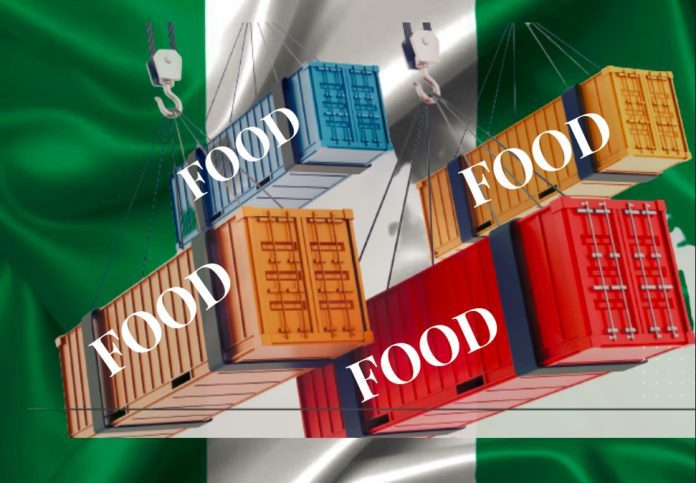News in brief: Nigeria has spent about ₦7.8 trillion on food imports in the last six years showing the continued poor state of local production despite government interventions.
Nigeria’s food import bill has risen drastically in recent years, as foreign trade statistics data made available by the Nigerian Bureau of Statistics (NBS) show. Experts describe the situation as worrisome and the sum has reached about ₦7.8 trillion in the last six years.
Data breakdown shows increasingly higher figures spent on food imports by Nigerians since 2017. Although, the figures for 2022 showed a slight decline of ₦1.9 trillion as against the ₦2 trillion spent on food importation in 2021.
Meanwhile, food imports for 2020 cost ₦1.2 trillion and ₦956billion in 2019. Nigeria spent ₦856.6 billion and ₦886 billion to bring food into the country in 2018 and 2017, respectively, showing a small decline again.

The nation’s reliance on foreign imports to complement local shortfalls, puts its annual price tag at $10 billion, according to a 2023 International Trade Administration report. The country’s Central Bank, in published findings, reveal that Nigeria’s food import bill jumped by 45 per cent to $2.71 billion (₦1.12tn) in 2021.
Most of its food needs are sourced from China, Netherlands, Belgium, India, and the United States. The most traded goods in this regard are mostly Durum Wheat, mackerel fish, rice, poultry, among others.
Nigeria’s agricultural sector has been severely affected by several factors like flooding, insecurity from armed non-state violent groups, as well as conflicts between pastoralist herders and farmers. These have all contributed to escalating the food imports receipts every year.
The federal government has developed several schemes and interventions to reverse the negative trend but they are yet to meet expectations. Schemes like the Anchor Borrowers’ Programme (ABP) aimed to diversify the economy and discourage over-reliance on oil. However, despite disbursing huge sums to small holder and medium to large scale farmers in agricultural commodity production, the country still has to bring in a bulk of food.




[…] [4] https://thejunction.ng/nigeria-food-imports-bill-gulps-7-8-in-6-years/ [5] […]